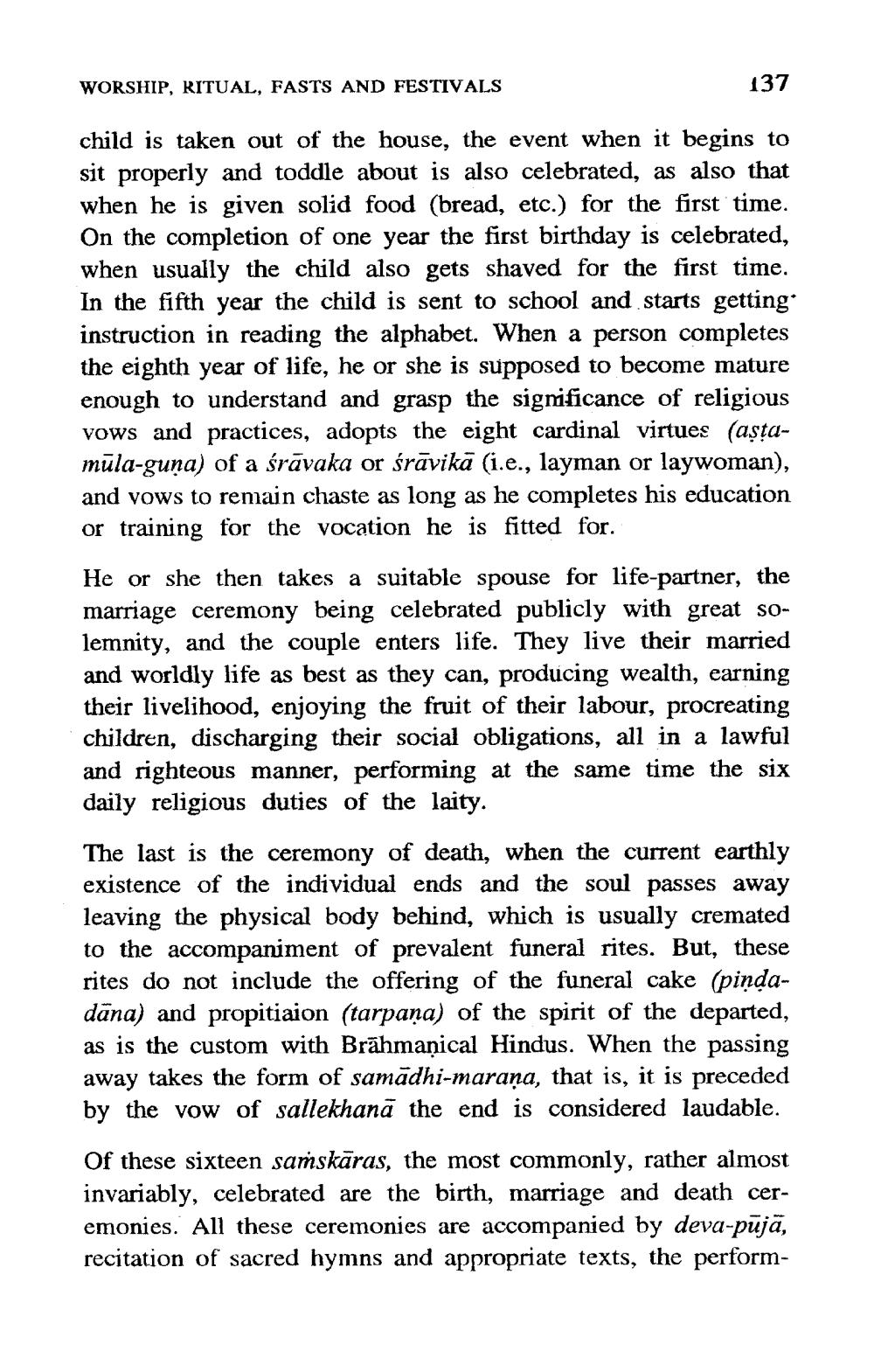________________
WORSHIP, RITUAL, FASTS AND FESTIVALS
137
child is taken out of the house, the event when it begins to sit properly and toddle about is also celebrated, as also that when he is given solid food (bread, etc.) for the first time. On the completion of one year the first birthday is celebrated, when usually the child also gets shaved for the first time. In the fifth year the child is sent to school and starts getting instruction in reading the alphabet. When a person completes the eighth year of life, he or she is supposed to become mature enough to understand and grasp the significance of religious vows and practices, adopts the eight cardinal virtues (aştamula-guna) of a śrāvaka or śrāvikā (i.e., layman or laywoman), and vows to remain chaste as long as he completes his education or training for the vocation he is fitted for. He or she then takes a suitable spouse for life-partner, the marriage ceremony being celebrated publicly with great solemnity, and the couple enters life. They live their married and worldly life as best as they can, producing wealth, earning their livelihood, enjoying the fruit of their labour, procreating children, discharging their social obligations, all in a lawful and righteous manner, performing at the same time the six daily religious duties of the laity. The last is the ceremony of death, when the current earthly existence of the individual ends and the soul passes away leaving the physical body behind, which is usually cremated to the accompaniment of prevalent funeral rites. But, these rites do not include the offering of the funeral cake (pindadāna) and propitiaion (tarpana) of the spirit of the departed, as is the custom with Brāhmaṇical Hindus. When the passing away takes the form of samādhi-maraņa, that is, it is preceded by the vow of sallekhanā the end is considered laudable.
Of these sixteen saṁskāras, the most commonly, rather almost invariably, celebrated are the birth, marriage and death ceremonies. All these ceremonies are accompanied by deva-pājā, recitation of sacred hymns and appropriate texts, the perform




